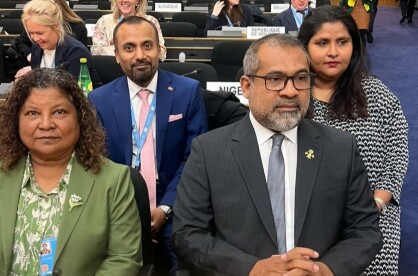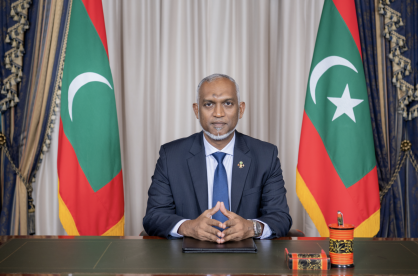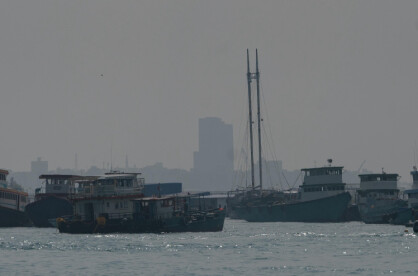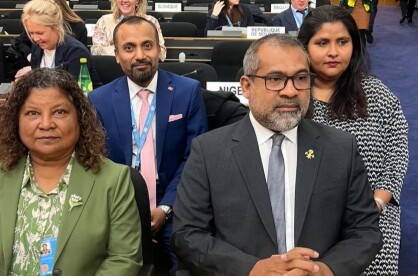With the announcement of the bi-election for the Komandoo constituency, after the untimely death of incumbent Member Hussein Waheed, political parties in the Maldives have now shifted into full gear to campaign for the seat.
The ruling Maldivian Democratic Party (MDP) and the Progressive Party of Maldives (PPM) and the Maldives National Party (MNP) have all announced their candidates with politicians and government officials, as well as opposition leaders and party supporters all descending on Komandoo over the past week or so.
Political parties will of course make various pledges and promises in the run up to an election [whether these are fulfilled, of course, is a story for another time]. That is par for the course. However, what was surprising during this election was the almost blatant abuse of state resources by the current government in its campaigning.
On 7 January, President Ibrahim Mohamed Solih announced a reclamation project for Mathi Komandoo, and then to link the reclaimed land to Komandoo via a bridge. He announced that residents of Komandoo will be allocated plots of land for housing from this reclaimed land, and that linking Mathi Komandoo to Komandoo was an election pledge of the MDP.
No problems there. The people of Komandoo, as all other citizens of the Maldives, deserve, and have the right to demand, development and improvements in their lives.
It becomes a problem, when the president of the country announces a mega-project for a constituency with an election just a month away, especially one that is not included in the budget for the year, at the campaign launch ceremony for the ruling party candidate. Add to this the speed with which the contract was awarded to the Maldives Transport and Contracting Company (MTCC) - on 13 January, not even a week after the announcement, valued at MVR240.90 million, was made by the President. Not exactly a small amount for a project not included in the budget.
This is not all there is to it though. On 14 January, MTCC announced that Minister of Youth, Sports and Community Empowerment Ahmed Mahloof, fresh off a suspension from duties for alleged corruption, would be inaugurating a football ground project in Sh. Komandoo, to be undertaken as a Corporate Social Responsibility (CSR) initiative of the MTCC. MTCC is majority-owned by the Government of Maldives, with the minority owned by the public, and the project will reportedly move ahead on an expedited schedule.
On 17 January, the Ministry of Tourism announced the addition of Dhigurah, Medhurah and Mairah (Dhiguvelidhoo) to the 18 islands it had tendered on 31 October 2021. That the same ministry issued the sample bidding document just a day prior, with no indication of any additional islands to be leased, or that the three islands to be tendered as one with a minimum bed capacity of 300, just happens to be in the Komandoo constituency, raises questions as to the motive behind these moves -- motives that would have undoubtedly been questioned by this current government for being corrupt, if not overreaching, had it been in opposition.
On 12 January, Transparency Maldives, the national chapter of the global anti-corruption NGO, Transparency International, in response to the reclamation and linking project in Komandoo being announced, issued a call to the government to stop the abuse of state resources and uphold election integrity. It noted that the project is not included in the budget, nor in any list of ongoing or planned projects published on any government website. It also called on the government to pass a law that prohibits and regulates against the abuse of state resources in the lead up to elections and for relevant authorities, such as the Anti-Corruption Commission and the Elections Commission to take action against such abuse.
While it is difficult to draw the line on abuse of state resources in the lead up to an election, or otherwise, such actions affect the integrity of elections, as well as divert public resources from projects or initiatives that may generate a greater benefit or have better economic rewards. It also gives an undue advantage to the candidate from the incumbent ruling party, who may otherwise not have been elected based on their own merits. It is no wonder that the Maldives is ranked 75th in the Corruption Perception Index, with the pervasiveness of corruption within the country.







